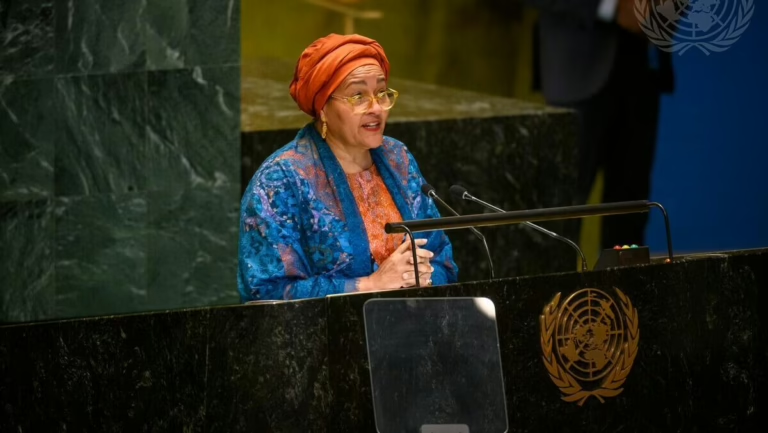UN Deputy Secretary-General Highlights Africa’s Urgent Need for Security Autonomy
Amina Mohammed, the United Nations Deputy Secretary-General, emphasized that Africa is confronting a complex array of challenges that threaten its peace and development. Among these, she identified violent extremism, africa-cybercrime-networks-97m/” title=”INTERPOL Strikes Major Blow to …n Cybercrime Rings, Seizes .4 Million in Massive Sting Operation”>cyber threats, and the escalating impacts of climate change as critical factors reshaping the continent’s security landscape.
Emerging Threats Undermining Stability
According to Mohammed, the rise of extremist groups continues to destabilize several regions, fueling conflicts and humanitarian crises. Simultaneously, the surge in cyberattacks targets vital infrastructure and governmental institutions, exposing vulnerabilities that require urgent attention. Furthermore, climate change exacerbates resource scarcity and displacement, intensifying tensions across borders.
Empowering Africa to Lead Its Security Agenda
The Deputy Secretary-General called for African nations to assert greater control over their security frameworks. She argued that sustainable peace and resilience depend on locally driven solutions supported by international partnerships. Strengthening regional cooperation, investing in technology, and enhancing governance are pivotal steps toward this goal.
Global Context and Recent Developments
Recent data from the African Union indicates a 15% increase in collaborative security initiatives among member states in the past two years, reflecting a growing commitment to collective action. Additionally, innovative programs integrating climate adaptation with conflict prevention have shown promising results in countries like Kenya and Senegal.
Mohammed’s remarks underscore the necessity for Africa to transition from dependency to ownership in managing its security challenges, ensuring a stable and prosperous future for its people.


















0 Comments